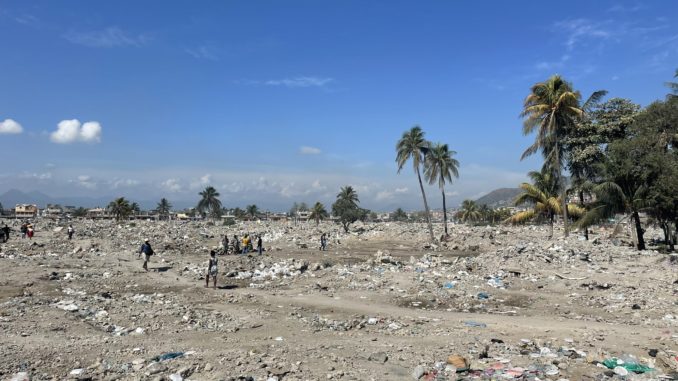
The assassination of Haitian President Jovenel Moïse didn’t seem to make a difference for the average Haitian.
“We woke up hungry Tuesday,” said Jean Paul, 26, a resident of the sprawling ghetto of Laforcette in Haiti’s second capital, Cap-Haïtien. “Wednesday, we woke up with the same hunger.”
This is how one person, speaking for many, experienced the July 7 assassination of Moïse, a U.S.-backed, neoliberal stooge.
Moïse did not have popular support. In an interview with TeleSUR, political analyst Patrick Mettelus described the widespread feeling across Haiti that foreigners had no right to intervene. “The social movements sought for months and years to remove Moïse from office but never to harm him.” His removal was popularly deemed the historic task of the Haitian people.
Furthermore, many Haitians find it peculiar that the governments most under scrutiny for the assassination have been tasked to lead the investigation. For a media outlet like CNN, it is an afterthought that “members of the U.S. delegation met with rival contenders for the country’s leadership on Sunday.” The U.S. government continuing to appoint itself as the custodian of Haiti’s immediate and long-term future has nothing to do with altruism and everything to do with U.S. economic and geopolitical interests.
David Oxygène, spokesperson of MOLEGHAF (Mouvement de Liberté, Égalité des Haïtiens pour la Fraternité or the Haitian Movement of Liberty, Equality and Fraternity) commented on the contradiction.
“The apprentice is gone, but the master, the boss and teacher are still there,” Oxygène said. “Their illegitimate proxy isn’t there, but the master, U.S. imperialism, is.”
Mtg of Haitian peasant leaders. The masses continue to stand up, march forward & mobilize to overthrow this regime. Jovenel is not there but the PHTK regime still is. “We will never agree with foreign domination, with elections under foreign control & PHTK crimes” #Haiti 🇭🇹 pic.twitter.com/7yGRHRjYcf
— Danny Shaw (@dannyshawcuny) July 15, 2021
Frustrations of a Wronged People
Absent from any mainstream analysis focused on palace intrigue and throwing us off the scent of 26 Colombian paramilitaries and DEA agents involved in the murder is what the Haitian people are saying and living.
The power scramble now gives the regime of the Parti Haitien Tèt Kale (The Baldheaded Party or PHTK) carte blanche to persecute any of their political enemies. Demonstrations against PHTK’s state and paramilitary violence were planned for July 7 and 8, which was designed to culminate in a protest against the PHTK on July 11, where diverse social actors would have taken back the momentum and the streets. All of these actions were cancelled and postponed once Moïse was assassinated because of fears of state repression.
Organizer Pierre Chanel: devaluing a ppl’s currency damages our economy & self-esteem. An incompetent state isn’t just responsible for ongoing massacres & political assassinations but for hunger & inflation. The #Haitian goud is now 104 for 1 US dollar. #Haiti 🇭🇹 pic.twitter.com/fLRBWVEfGK
— Danny Shaw (@dannyshawcuny) July 2, 2021
Mainstream headlines predictably obfuscate, engaging in racist tropes and sensationalism. As the sentiment Jean Paul expressed, in the last week, nothing objectively changed in the lives of the millions of workers, peasants, and the under- and unemployed across Haiti. The Haitian currency is highly devalued. One U.S. dollar converts into 94.69 gourdes. Gasoline scarcity causes serpentine queues and a black market price of $10 dollars per gallon. Millions of Haitians wake up hungry every day. Foreign-owned sweatshops and giant plantations, like the Savanne Diane, continue to produce for export, paying Haitian workers an average wage of $4 a day.
Youth from the forgotten #Haiti explains how he survived the everyday violence of a turf war between Bannan and Chada. 8 bullets later he is still here 🇭🇹 pic.twitter.com/v8P780xzKs
— Danny Shaw (@dannyshawcuny) July 3, 2021
Gangs and paramilitary units have been involved in a pitched turf war, killing hundreds of Haitians while displacing thousands. While Jimmy “Barbecue” Cherezier, a strongman from Port-au-Prince ghettos Delma 6 and Lasaline, has shifted his rhetoric as of late, innocent families continue to be trapped in neighborhood feuds. For a deeper examination of the role of Barbecue and the heavily armed G-9, or the Confederation of Nine Gangs, Democracy Now hosted a debate on July 8. Mintpress News pressed about the potential of the 3-million-strong lumpen proletariat (those members of the working class who are unable to sell their labor for wages) to organize themselves against their class enemy.
No Further U.S./UN/OAS Intervention in Haiti
The slogan, “no foreign intervention in Haiti,” is misleading. Haiti is a neocolony. Foreign intervention is everywhere in Haitian society. Now, U.S. imperialism and their junior partners are attempting to use this power vacuum to launch yet another invasion of Haiti.
Mainstream outlets have shown images of Haitians asking for help outside the U.S. embassy in Port-au-Prince. How did a proud, dignified people—an example of self-determination for the world—get reduced to dreaming of a visa to escape their country’s woes? Only a thorough examination of the neocolonial model and all of its far-reaching tentacles of economic, political, diplomatic, military, educational and psychological domination can begin to address this question.
Walter Rodney’s analysis in the “Politics of the African Ruling Class,” (Black World View, 1976) offers an introduction to Haiti’s subservient position today:
“They [the dependent countries] were brought into the world economy as fractions during the colonial period. They have not yet transcended this state of affairs. And, therefore it follows that they have not yet attained the stage where we can talk about national economies.”
The Western media is expert in ignoring this history of foreign repression and resistance. Instead, it presents Haiti as an isolated basketcase.
A NACLA article by Haitian scholar and activist Mamyrah Dougé-Prosper and professor and organizer Mark Schuller offers insights into how to support a people’s agenda. The Commission de Recherche pour une Solution Haïtienne à la Crise is a coalition warning of another U.S. intervention and fighting for a “sali piblik,” or a Haitian solution.
In the protracted national liberation struggle, the Haitian people must have the last word. As David Oxygène said, “We are standing up, marching forward and mobilizing to overthrow this regime. Jovenel is not there, but the PHTK regime is still there. MOLEGHAF will never agree with foreign domination, with elections under foreign control, PHTK crimes with or without Jovenel. Imperialism ate him up and threw him away. No longer needing him, they discarded him. MOLEGHAF continues the battle against the imperialists and neocolonialism. The struggle continues! Stronger! Long live the Haitian revolution!”
Danny Shaw is a professor of Caribbean and Latin American Studies at the City University of New York. He frequently travels to Haiti to stay with the mass anti-imperialist movement. A Senior Research Fellow at the Center on Hemispheric Affairs, Danny is fluent in Haitian Kreyol, Spanish, Portuguese and Cape Verdean Kriolu. He has reported for Toward Freedom on Haiti and he recently wrote a book review.

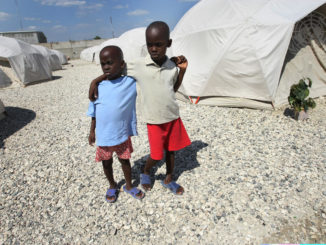
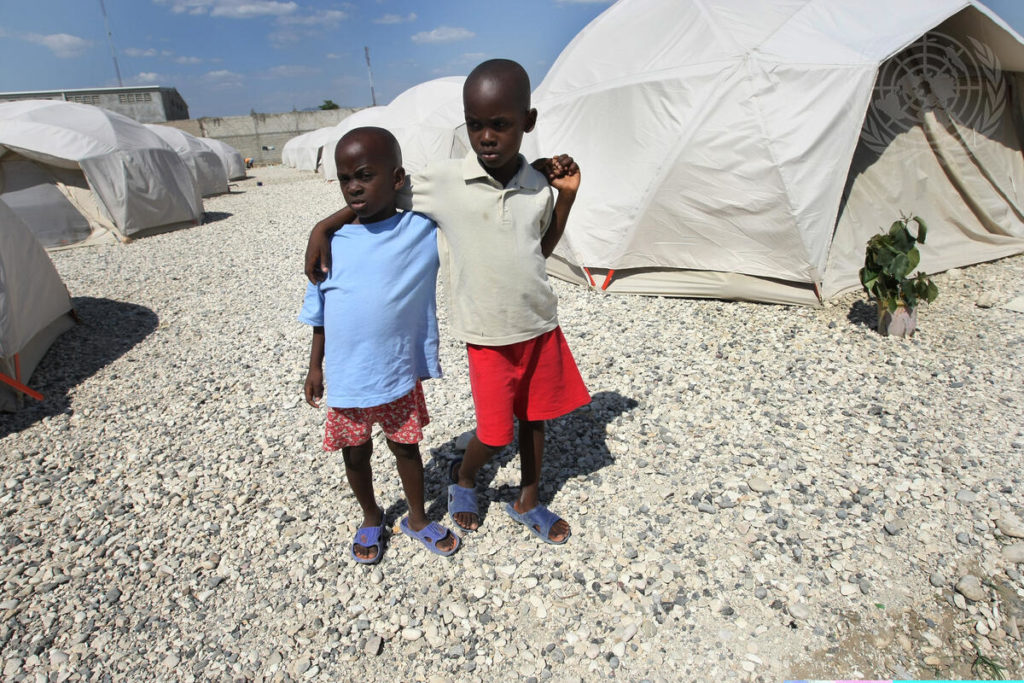
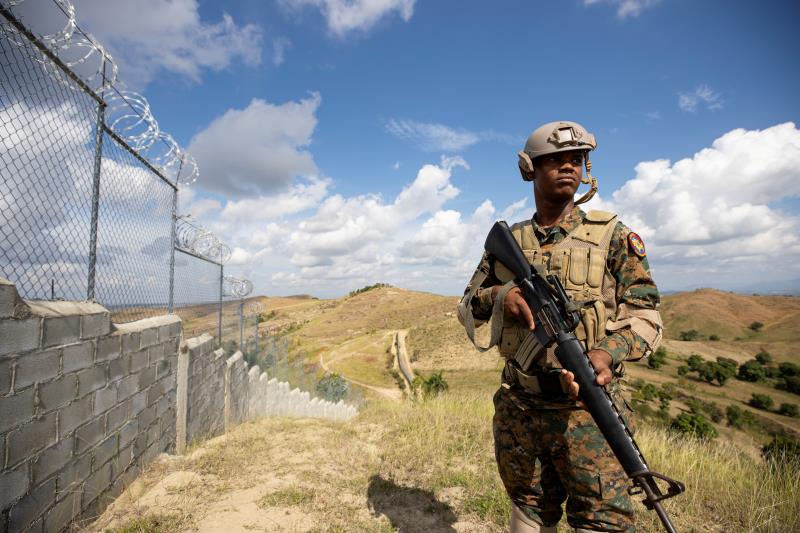
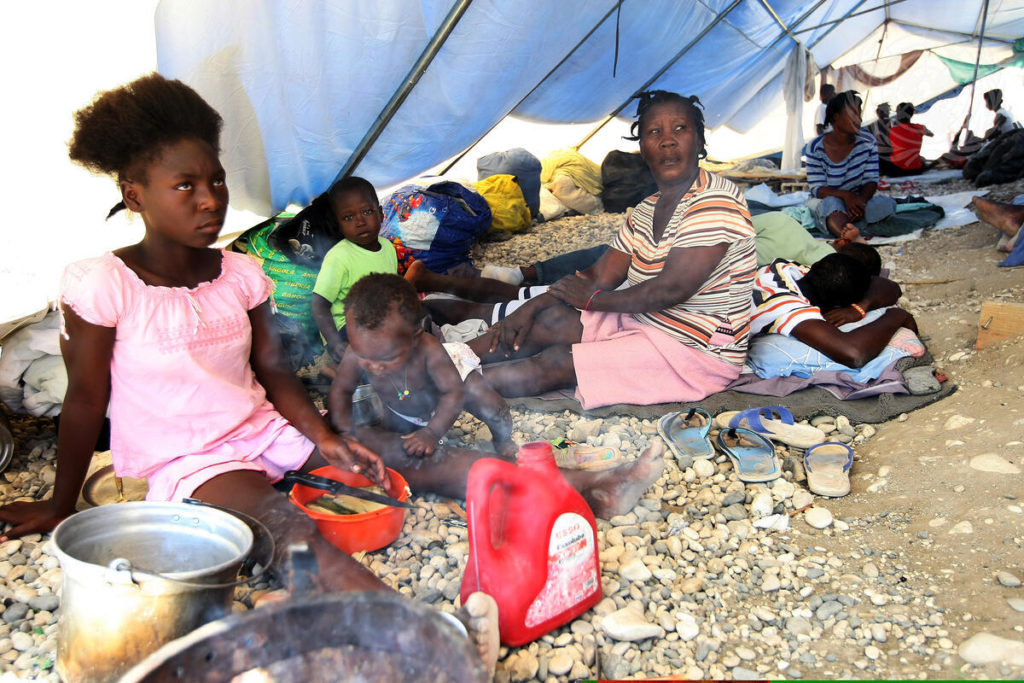
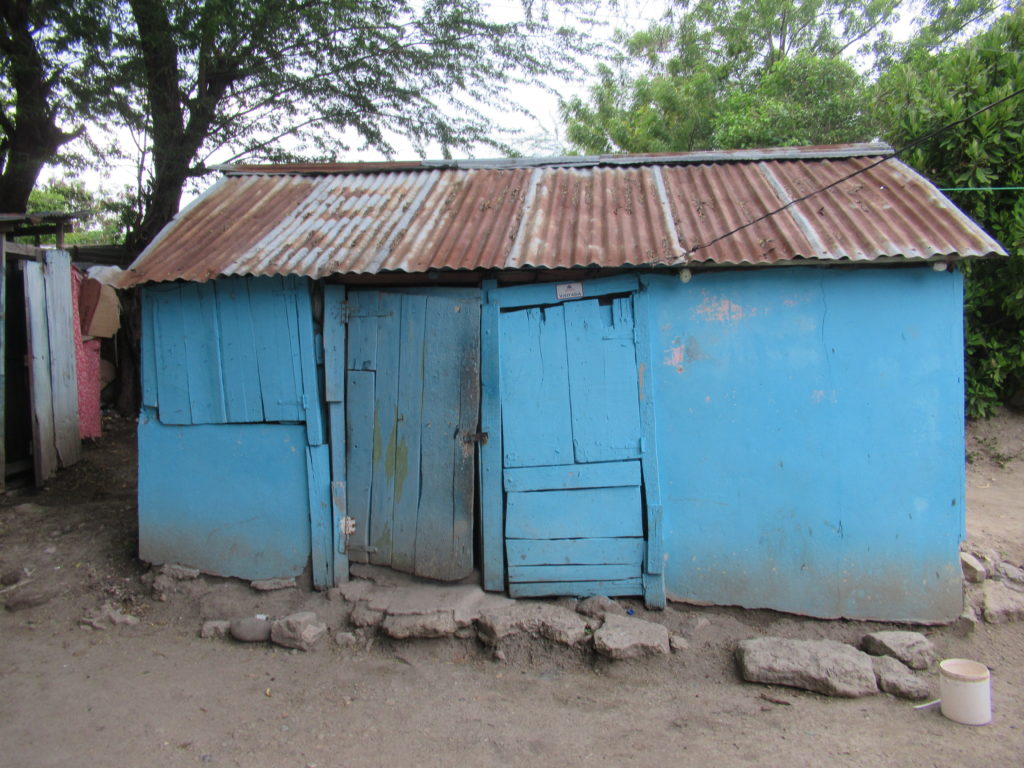
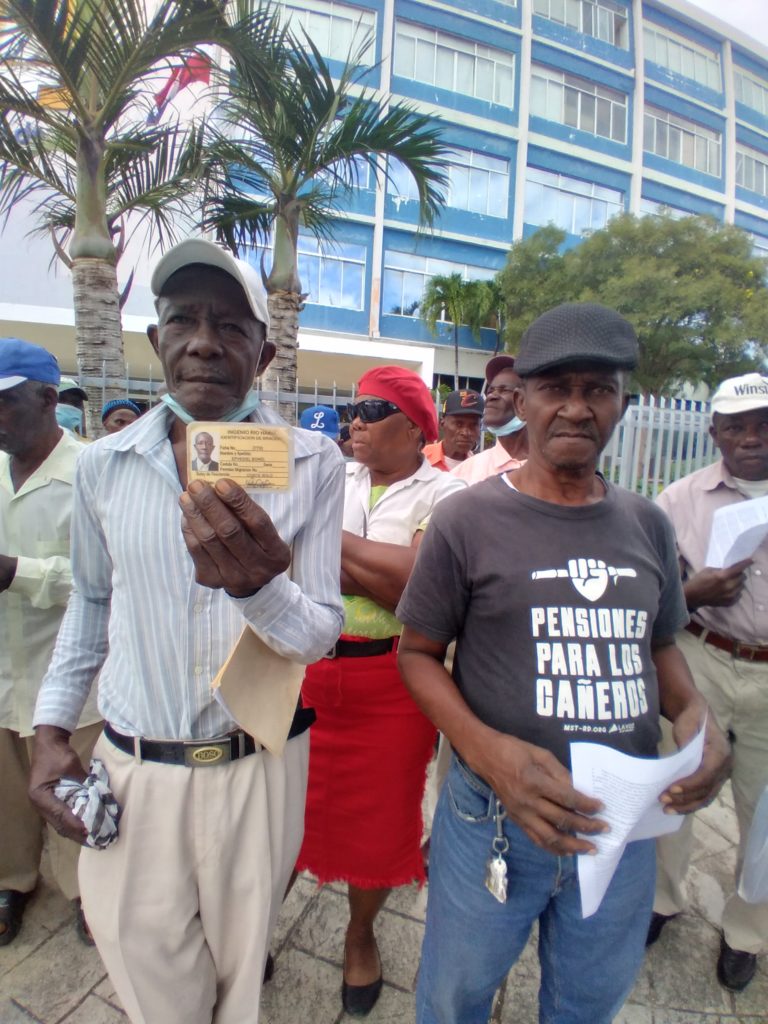
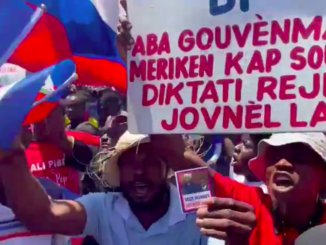
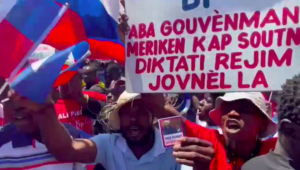
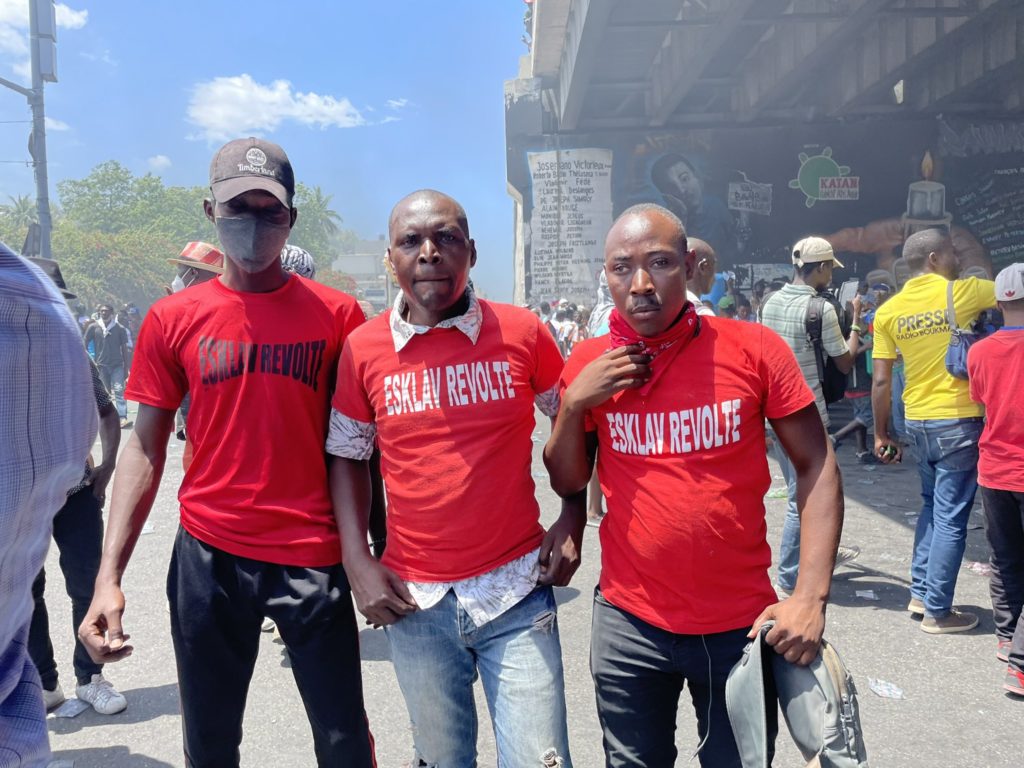

 Black Spartacus: The Epic Life of Toussaint Louverture by Sudhir Hazareesingh. New York: Farrar, Straus and Giroux. 2020.
Black Spartacus: The Epic Life of Toussaint Louverture by Sudhir Hazareesingh. New York: Farrar, Straus and Giroux. 2020.